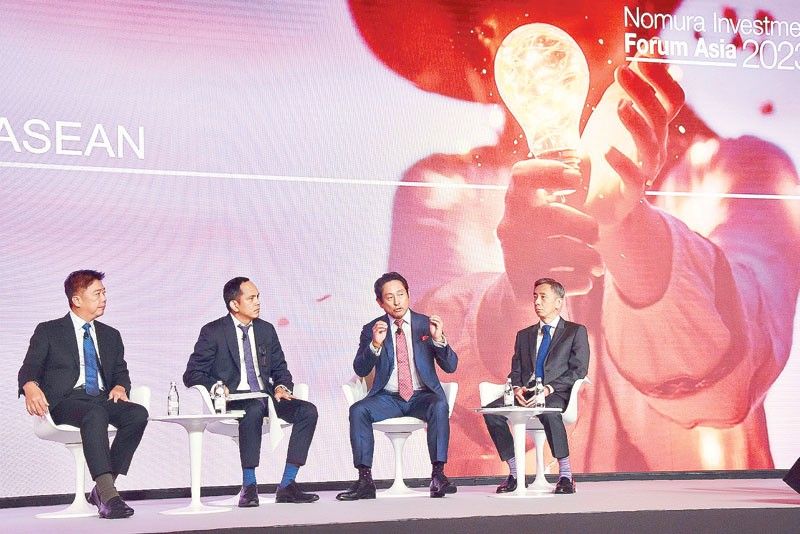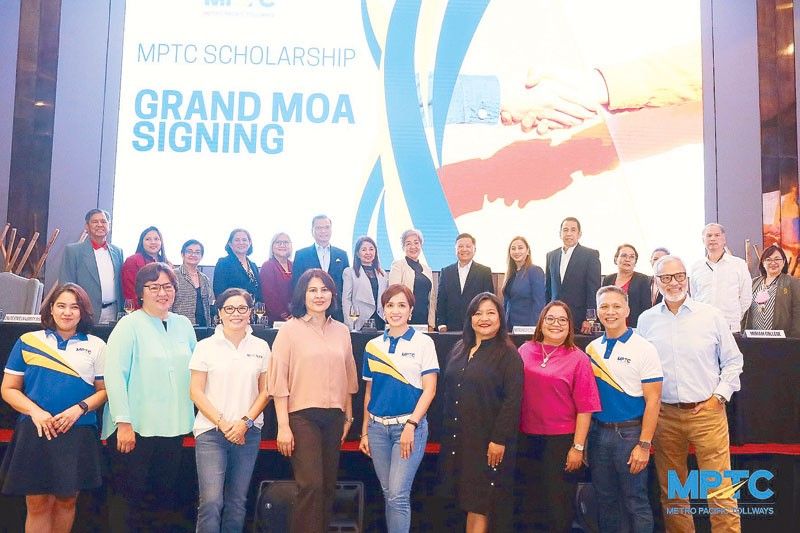PPP: A pillar in nation-building

I cannot emphasize enough the strength and the value that PPP brings to economic recovery and national development. I have been harping on about this for a decade now.
As a quick introduction to the uninitiated, PPP or Public-Private Partnership (PPP) can be broadly defined as “a contractual agreement between the government and a private firm targeted towards financing, designing, implementing and operating infrastructure facilities and services that were traditionally provided by the public sector.”
According to the Public-Private Partnership Center of the national government, it “embodies optimal risk allocation between the parties — minimizing cost while realizing project developmental objectives. Thus, the project is to be structured in such a way that the private sector gets a reasonable rate of return on its investment.”
Previous administrations have acknowledged PPP as a pillar in nation building and have relied on the private sector for much-needed support and assistance, not just in government infrastructure projects but also in other sectors as well. In the most recent administration, however, PPP had to take a back seat in favor of loans and official development assistance or ODA.
Which is why there was a sigh of relief all around when President Ferdinand “Bongbong” Marcos Jr., or PBBM, called for the revival of the PPP under his administration, specifically in remarks made during his attendance in the Asia-Pacific Economic Cooperation (APEC) CEO Summit in Bangkok, Thailand, where he said that “stronger public-private partnerships (PPPs) are vital in revitalizing the economy amid the coronavirus disease 2019 (COVID-19) pandemic and other global challenges.”
PBBM also stressed that strengthening the partnerships between the government and the private sector is the “centerpiece” of the Philippines’ economic transformation bid, and that said, public and private sectors must work together to develop more infrastructure, energy and agriculture projects to empower and strengthen the economy.
These matters, and a little bit more on our own infrastructure projects at Metro Pacific Investments Corp. (MPIC) and Metro Pacific Tollways Corp. (MPTC), are what I discussed recently when I was invited to speak at the Nomura Investment Forum Asia 2023 held in Singapore with the theme “Asia’s Time to Shine.”
In the panel discussion on “the Big Bright Spots in ASEAN,” I shared with the attendees — over a thousand professional investors from around the world, more than 150 representatives from the most sought-after, listed companies in the region, and over 30 industry experts — about the renewed commitment to PPPs by the Marcos Jr. administration and the recently passed liberalization laws that will support the government’s robust infrastructure program.
Recently, PBBM issued Executive Order No. 30 amending the composition of the Public-Private Partnership Governing Board (PPPGB) to further boost private sector participation in PPP-related matters, including big-ticket projects of the national government.
The Marcos Jr. government plans to roll out 194 flagship projects amounting to P9 trillion. Of the 194 projects, 45 are seen to be financed through partnerships with the private sector. Socioeconomic Planning Secretary Balisacan also said 95 of the projects are already ongoing and have been approved for implementation, while 47 are undergoing feasibility studies.

Metro Pacific Investments Corp. is the country’s premier infrastructure conglomerate that believes that infrastructure buildup will hasten the country’s recovery from the ravages of the pandemic.
Metro Pacific Tollways Corp., the toll road unit of MPIC, has several big-ticket projects that are game-changers: the iconic Cebu-Cordova Link Expressway (CCLEX) toll bridge; the North Luzon Expressway (NLEX) connector road; and the Cavite Laguna Expressway (CALAX), among others.
One of the positive aspects of PPP is increased support and impact of the private partner’s corporate social responsibility or CSR. One prime example of this is the scholarship program of MPTC.
As the leading mobility infrastructure and solutions provider in the Philippines, MPTC kicked off its scholarship program for the academic year 2023-2024. Together with its subsidiaries — NLEX Corp., MPT South, and Cebu-Cordova Link Expressway Corp. — and in partnership with 14 universities, the program aims to provide educational assistance to students from low-income households.
According to Celeste Pia Alimon, MPTC assistant vice president for branding and communication, the MPTC Group opens more opportunities for deserving students from low-income households to pursue their careers in the fields of Accounting, Engineering, and Education without any financial hindrance and this is done through the help of its three subsidiaries. Started in 2012 with just three partner universities at the time, namely Bulacan State University, Holy Angel University and University of the Philippines, the scholarship has now expanded to partner colleges and universities in Visayas and Mindanao for a total of 14 partner colleges and universities this incoming school year.
“This signifies MPTC’s strong desire to be able to give public service and be able to solidify our firm commitment to nation building, especially one that will provide unparalleled opportunities for outstanding students whose personal circumstances might otherwise deny them the chance to study and pursue their dreams,” according to Luigi Bautista, NLEX Corporation president and general manager.
PPP is geared for both public and private sectors to gain improved efficiency and project implementation processes in delivering services to the public. It was good that it was revived because the public sector benefits more from this than the private partner.
Like what MPIC chairman Manuel V. Pangilinan or MVP said in 2022, “I do hope that we can revive it (PPP) because at this time when investments are needed, because consumer wallet is challenged, government finances are also challenged because of higher debts.”
“The supreme task of nation building is something we’re very serious about, and trying to help as many people as we can, especially those below the line of poverty. So, we’re very serious about that and I know that we cannot do it alone, we have to partner with government,” MVP said.
According to him, investments by the government and the private sector would drive the economy in the next six years. “You cannot leave it to government alone. I think the private sector has got to do its part in that investment process.”
- Latest





























